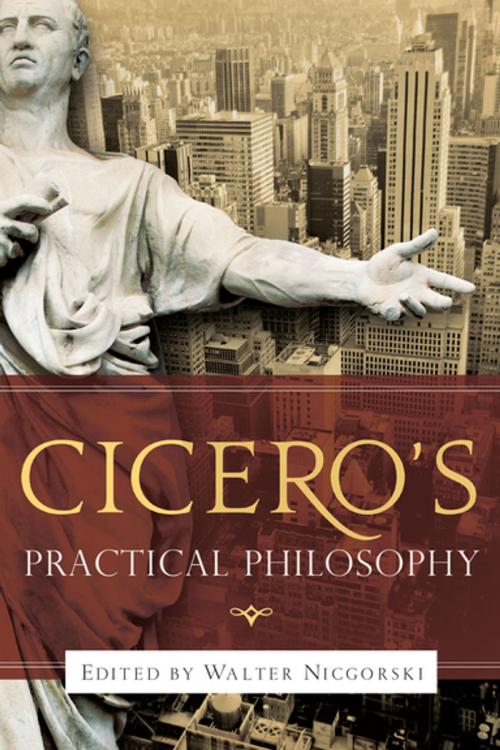Cicero’s Practical Philosophy
Nonfiction, Religion & Spirituality, Philosophy, Ancient, Political, Ethics & Moral Philosophy| Author: | ISBN: | 9780268158118 | |
| Publisher: | University of Notre Dame Press | Publication: | April 15, 2012 |
| Imprint: | University of Notre Dame Press | Language: | English |
| Author: | |
| ISBN: | 9780268158118 |
| Publisher: | University of Notre Dame Press |
| Publication: | April 15, 2012 |
| Imprint: | University of Notre Dame Press |
| Language: | English |
Cicero’s Practical Philosophy marks a revival over the last two generations of serious scholarly interest in Cicero’s political thought. Its nine original essays by a multidisciplinary group of distinguished international scholars manifest close study of Cicero’s philosophical writings and great appreciation for him as a creative thinker, one from whom we can continue to learn. This collection focuses initially on Cicero’s major work of political theory, his De Re Publica, and the key moral virtues that shape his ethics, but the contributors attend to all of Cicero’s primary writings on political community, law, the ultimate good, and moral duties. Room is also made for Cicero’s extensive writings on the art of rhetoric, which he explicitly draws into the orbit of his philosophical writings. Cicero’s concern with the divine, with epistemological issues, and with competing analyses of the human soul are among the matters necessarily encountered in pursuing, with Cicero, the large questions of moral and political philosophy, namely, what is the good and genuinely happy life and how are our communities to be rightly ordered. The volume also reprints Walter Nicgorski’s classic essay “Cicero and the Rebirth of Political Philosophy,” which helped spark the current revival of interest in Cicero the philosopher.
Cicero’s Practical Philosophy marks a revival over the last two generations of serious scholarly interest in Cicero’s political thought. Its nine original essays by a multidisciplinary group of distinguished international scholars manifest close study of Cicero’s philosophical writings and great appreciation for him as a creative thinker, one from whom we can continue to learn. This collection focuses initially on Cicero’s major work of political theory, his De Re Publica, and the key moral virtues that shape his ethics, but the contributors attend to all of Cicero’s primary writings on political community, law, the ultimate good, and moral duties. Room is also made for Cicero’s extensive writings on the art of rhetoric, which he explicitly draws into the orbit of his philosophical writings. Cicero’s concern with the divine, with epistemological issues, and with competing analyses of the human soul are among the matters necessarily encountered in pursuing, with Cicero, the large questions of moral and political philosophy, namely, what is the good and genuinely happy life and how are our communities to be rightly ordered. The volume also reprints Walter Nicgorski’s classic essay “Cicero and the Rebirth of Political Philosophy,” which helped spark the current revival of interest in Cicero the philosopher.















